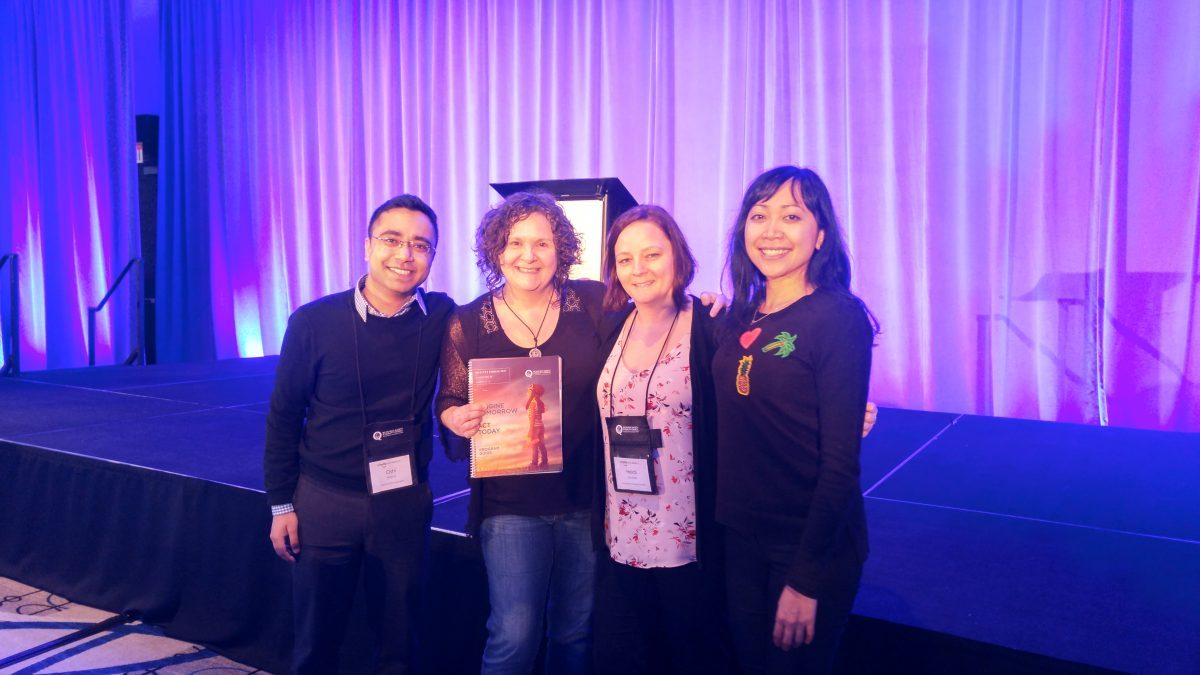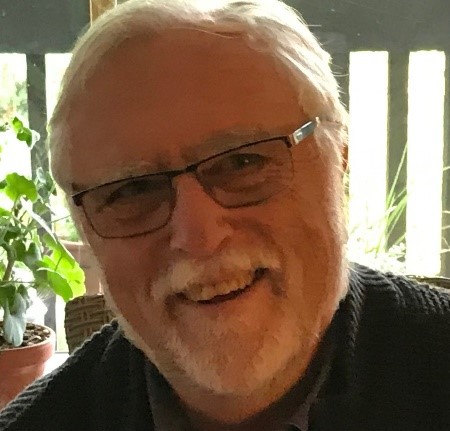Posted • Last updated
Categories: My Experience, News & Events
Oshi Mathur was one of the 20 PVN Patient Partners to attend Quality Forum 2017, which took place March 1-3 in Vancouver. In this post he describes his experience at the Forum and his main takeaways from participating:
“It is 8:30AM on March 1, 2017. I feel self-conscious as I get up and join the 200 or so people present around me in an enormous, haphazard circle. This combination of early morning hours and group activity brings back flashes of morning assemblies in elementary school. Rhythmic drumming and a Coast Salish chant make their way from the Elders in the center of the ring outwards, filling us all with a sense of awe. Before I know it, the circle is wrapping up on itself as we walk in a single file, along the perimeter, momentarily clasping palms with one person and then the next, exchanging morning salutations while swaying to the beat. Once our trip around the room is complete and every person has greeted every other, it is hard to describe the sense of connectedness sweeping over the crowd. While the ideal setting for this communal welcome is somewhere in BC’s lush, temperate rainforest, we are, in fact, in the Regency Ballroom at The Hyatt in Vancouver, marking the start of the pre-Forum day for Quality Forum 2017 (QF17).
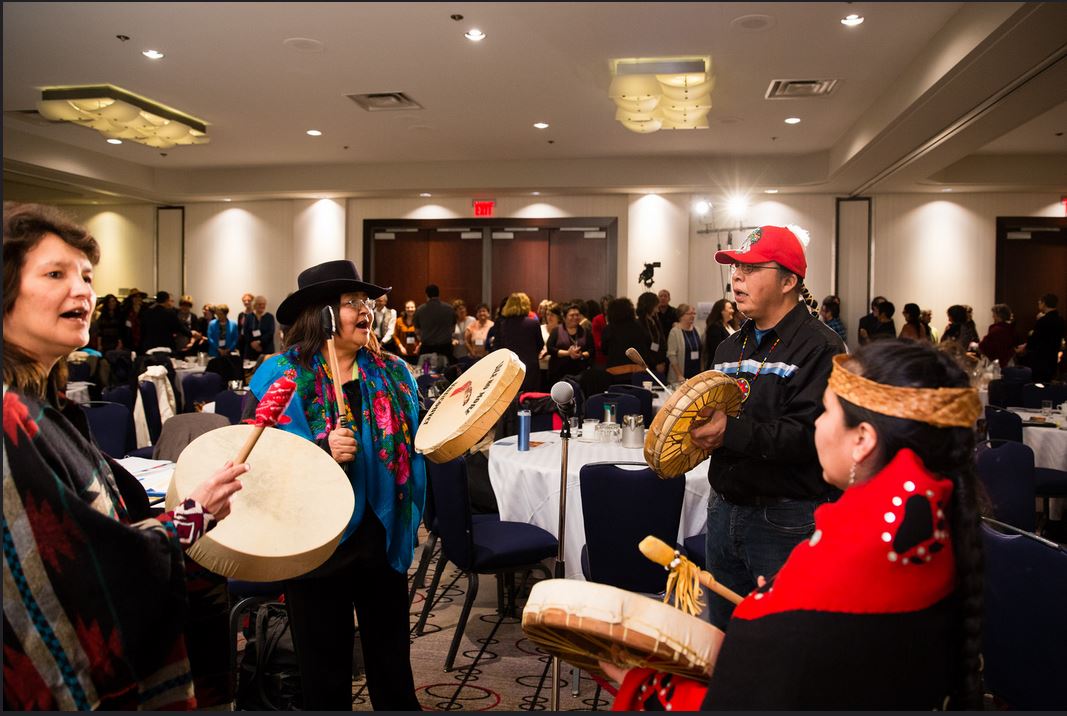
This was quite the start to my first Quality Forum as a Patient Partner with PVN. The theme for the pre-Forum event was the inclusion of Indigenous perspectives while discussing quality in a health care setting. It was a humbling day which, among many knowledge-rich presentations and sessions, saw something amazing happen – a special moment in British Columbia’s history: representatives from 23 colleges for health care professionals, along with representatives from the Ministry of Health and the First Nations Health Authority (FNHA), signed a declaration to commit to culturally safe care for the Indigenous peoples of our province.
Joe Gallagher, CEO of the FNHA, described this as a great victory in the march towards achieving cultural safety and humility for the First Nations in our provincial health care environment. One fear that I always carry with me when attending large conferences is whether any honest action will come out of all the ideation and dialogue that take place during such events. Witnessing the signing of the declaration at the very start of the Forum put all such doubts to rest and allowed me to immerse myself fully in the coming two days of QF17.
The First Day of Quality Forum 2017
Day 1 started bright and early at 7:30 am, as I joined fellow patient partners in enjoying a hearty breakfast. Ian Campbell, the Chief of the Squamish First Nation, made an energizing morning address which got everyone moving. If I was thinking that the welcome circle from the pre-forum day was exciting, I was in for a treat. Chief Campbell divided the hall into sections representing hummingbirds, wolves, beavers, and salmon, assigning each a unique sound and movement which we practiced, giggles aplenty, before finally performing it at the right cue during the song. Mental note – the key to starting a conference right is getting working professionals in business suits to flap around like hummingbirds at 8 am!
Coming into the conference as a relatively inexperienced patient partner, I was a little nervous about how the health care professionals around me would react to a patient voice in the discussions; a voice not aware of all their medical terminology, their exact roles, or the health care policies and principles they operate within. I was pleasantly surprised at how much everyone around me valued and invited such patient voices! This realization was truly cemented in the keynote by Tiffany Christensen, who grew up with cystic fibrosis and lived through not one, but two double lung transplants.
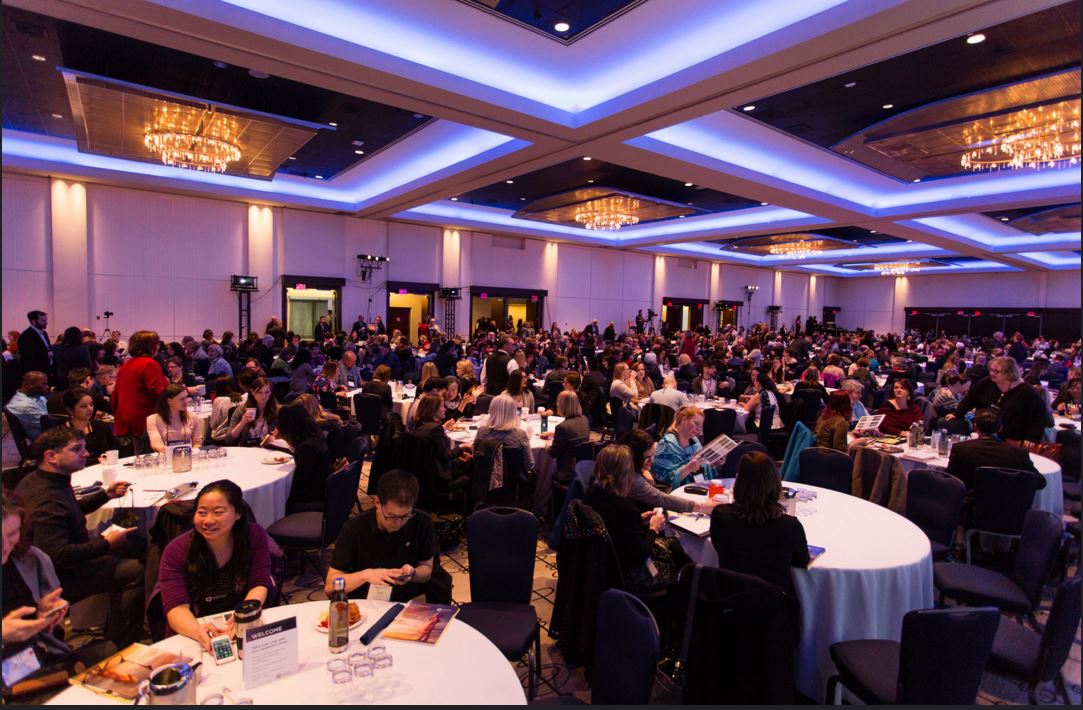
Tiffany’s inspiring story of resilience showcases how an ‘activated patient’ voice can truly change the course of someone’s health care journey and lead to more positive outcomes for all involved, including the medical staff and system. The keynote was followed by some worthy breakout sessions throughout the day: the toughest job for those attending was choosing between sessions, when they all seemed so interesting. I had the pleasure of attending some ‘rapid fire’ sessions which featured academics and health care professionals alike, successfully implementing the cutting edge medical solutions within tight budgetary, social, and institutional constraints. This introduced me to amazing stories like the one by Dr. Matthew Chow, involving ‘Tele triage’ – allowing a dedicated team of mobile, technologically well-equipped, psychiatric nurses to work in synergy with the police and help prevent mental-health situations from turning into criminal ones, saving everyone a ton of time, money, and wasted effort.
The Second Day of the Forum
Through the course of the forum, we were treated to excellent meals and even better desserts! Day 2 began with a scrumptious breakfast where, as part of the Mealtime Match-Up, I was partnered up with Dr. Andy Hamilton, the Medical Director of Surgical Services at Interior Health. It was a great learning opportunity which allowed me some insight into the work of Interior Health. I hope the BC Patient Safety & Quality Council (BCPSQC) continues embedding such networking opportunities in the forums to come!
The keynote was delivered by Lisa Schilling from Kaiser Permanente, a health care company operating throughout the United States, earning many accolades on efficient, patient-focused medical care. Lisa talked about institutional transformation and the key ingredients in such a process, especially when it affects millions of stakeholders. The relevance of her talk was not lost on the forum’s crowd, well versed with the burdens a large, diverse, and aging health care system like ours carries.
The rest of the day included, along with many breakout sessions, some field trips as well. I was lucky to have found space in two of them while signing up for the forum. The first field trip brought a group to the Telus Innovation Centre in downtown Vancouver, where we experienced some amazing technology at the cusp of going viral – like the home health monitoring system which allows people to manage their chronic conditions in the comfort of their homes, while seamlessly uploading their health data and sharing it securely with health care professionals. Such systems allow for early intervention and prevent hospital visits and lengthy wait times, greatly reducing costs.
The second trip was a visit to the Port of Vancouver. Now, how related to health care could this visit possibly be? Turns out, very! Our tour of the port showed us how many large entities come together to operate in unison and ensure the smooth execution of activities which form the lifeline of the province’s economic health. We were quick to draw parallels with our health care authorities, which must keep improving the way they work with each other to deliver unified, consistent care for patients across the different health regions.
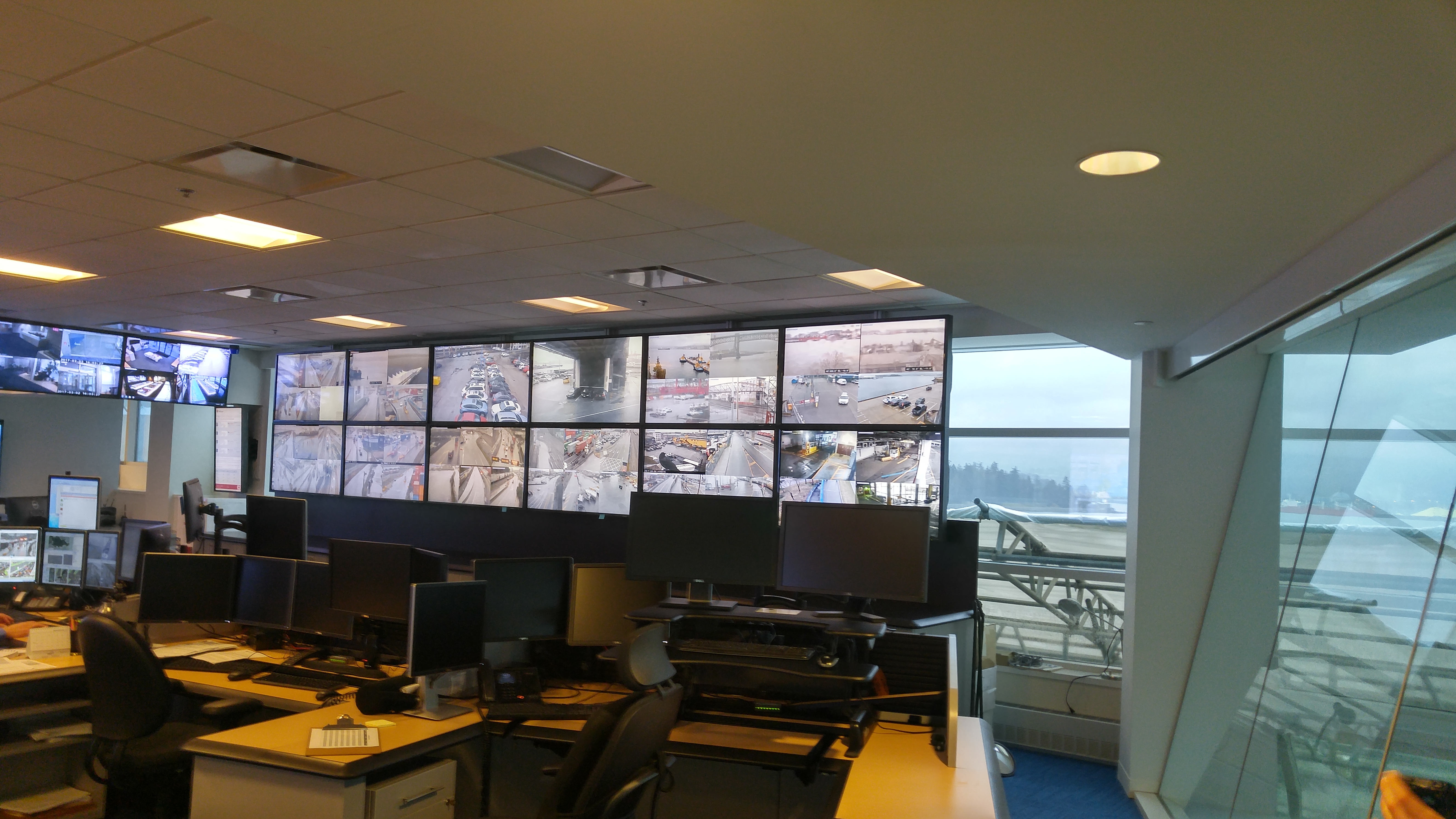
Our last day at QF17 was concluded by a presentation that truly put the scope of our health care system into perspective. David Matear from Alberta Health Services provided us with an insider’s play-by-play of the Fort McMurray fires and what a tremendous job the health care staff in that region did in the face of adversity. It left many of us stunned, proud, and inspired in equal parts, making for a fitting end to what was an immersive experience in health care quality improvement.
My Main Takeaways of Quality Forum 2017
QF17 was a big success and not enough gratitude can be expressed to the BCPSQC staff that orchestrated an event of this magnitude with such panache. I find myself extremely lucky to have had a chance to part-take in this experience and I take from it many tools and skills that will allow me to be a more informed and effectual ally for patients like myself who navigate the health care system. To quote Tiffany Christensen, many of us are “participating within [ourselves] as patients”; we need to change that and become stronger voices that actively shape our health care system towards a values-based enterprise. As it was said many time during the forum – “nothing for us, without us.”

We’re so glad you had a great experience at the Forum, Oshi! Thank you so much for sharing with us, and we hope to see you again at Quality Forum 2018!
If you’re curious about QF17 and all the presentations, visit the Quality Forum website to learn more about the events and watch the recordings that the BCPSQC is posting.
Author: Oshi Mathur
Oshi is a biomedical engineer and self-professed 'dog whisperer' based in Vancouver, BC. He has been volunteering as a patient partner with the Patient Voices Network since January 2015 and has enjoyed voicing the patient perspective in varied health care settings in this capacity. Oshi is particularly interested in the use of technology in health care, especially in the areas of assistive and diagnostic devices. While currently working as a Senior Associate Engineer, he hopes to eventually pursue a career in Health Care Management in a values-based setting. When not working or volunteering, Oshi can be found hiking or snowboarding in BC’s local mountains, or sampling the many delectable treats that Vancouver’s kitchens have on offer.
